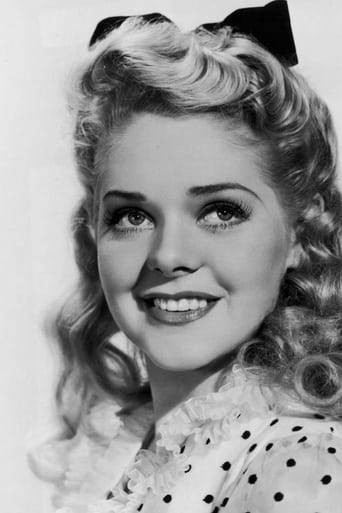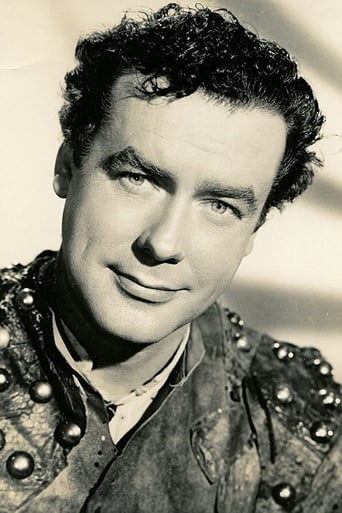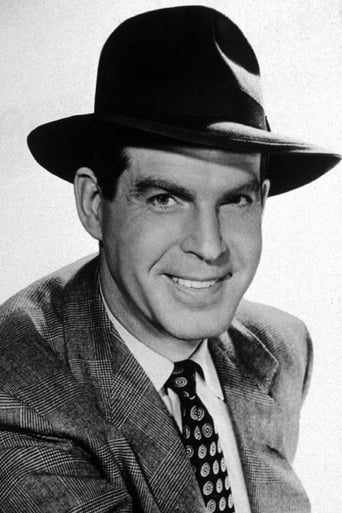Greenes
Please don't spend money on this.
Spidersecu
Don't Believe the Hype
Taraparain
Tells a fascinating and unsettling true story, and does so well, without pretending to have all the answers.
Verity Robins
Great movie. Not sure what people expected but I found it highly entertaining.
Robert J. Maxwell
In order to really get anything out of this movie, with being irritated, you must "bracket" this story, as the phenomenologists would put it. I happen to consider myself very knowledgeable when it comes to phenomenology, having read the Wikipedia entry. The phenomenologist, Husserl insisted, must "bracket," that is "suspend his belief in," "not make any use of" all presuppositions, all that he already believes in, in order to be able to accept presuppositionless description of a film. Or -- we could put it this way: Forget what you know about steamboats. Sit back and enjoy the simple-minded myth.Now, boys and girls, we all know that Robert Fulton invented the steamboat even though it isn't true. But let's make believe it is. Richard Greene is Robert Fulton, a well-dressed English gentleman who arrives in New York in 1807, when Thomas Jefferson was president, books a room in Alice Faye's rough-hewn boarding house and tavern, and hires Fred MacMurray to build the hull of his new "steamboat." The hull should be finished at about the same time his steam engine reaches New York from England. The problem is that Greene has no money and must find an angel.Little old New York is some city, by the way. MacMurray muses about getting a farm on the Bowery or in Greenwich Village. (Twenty years later, Edgar Allan Poe had to move to the Bronx.) The aristos wear white stocking but most of the folks are in fustian garb -- unprepossessing but as clean as if they'd just come back from the laundry. The men are all closely shaved by the studio barber. There may not have been any effective sanitation system but the streets are cleaner than they are today. Fist fights break out all the time and nobody gets hurt. There are many Germans and Dutch, a beer pavilions. Everything and everyone is cozy. It's all simplified, of course, but I like it. It's like reading a newspaper printed for the half blind. Any normal person would like to live in such a Cloud Cuckoo Land if it weren't for the epidemics and the horse manure.Richard Greene, Alice Faye, Fred MacMurray, and Andy Devine are all good natured and friendly. There's a friendly darky too. He's a funny guy but we can't be sure of his status. Slavery wouldn't be abolished in New York for another ten years. Ward Bond is not friendly at all. He's a figure of some authority on the waterfront and the first thing he does when he enters the tavern is pick a fight with Richard Greene. Greene speaks and dresses a little like a fairy but he soon decks the burly Bond. There's a real man underneath those furbelows.Greene has a lot of difficulty getting financing and there is a dismissible comedy romance to take up time, but in the end the hull and engine are mated and launched on the Hudson River. The jeering crowd is skeptical of the contraption. Does it finally work? Are you kidding?
Andrew Schoneberg
This film sports winning performances (Alice Faye is delightful and very accomplished as a light comic actress), plenty of well-played comedy and well-staged action, a fine Alfred Newman score. But what really impressed and intrigued me were some elaborately staged outdoor scenes which appeared to be at least partially shot on a real 18th century seaport, not just the back lot. Either Fox spent a whole lot of money constructing a very large and realistic looking seaport set, or some of this was shot on location at some historic recreation site, or the art director was a genius in making the back lot look a lot bigger than it was. Interesting to see what a muscular hunk Fred MacMurray was, very different than his image in later years.
jotix100
One of the 19th centuries great inventions was the steam ship. It opened rivers that weren't able to let ships from going upstream because of their currents. Up to that point navigation only was a one way affair. The vision of Robert Fulton was instrumental in how trade and commerce could be taken to remote ports along those waterways. The story centers around the time when Fulton was at a crossroads of how to make his idea work. To make matters worse, President Jackson's embargo was working against him since he could not get the engine he needed to make his dream come true.This is a delightful view at that time in history thanks to Rida Johnson's play, as directed with his usual fine style by Henry King. The screen adaptation was by Harry Tugend, who turned the basic premise into a vehicle for Alice Faye, its star.Miss Faye was at the height of her beauty at the time. She was a natural performer who projected charm and wit in most of her screen appearances. As Pat O'Day, the girl from the wrong side of town, she was a great asset in our enjoyment of the film. The handsome Fred McMurray is seen as Charles Browne, Fulton's friend and ally. Richard Greene excels as Robert Fulton, a man of great vision that revolutionized the shipping in the United States with his steam ship invention. Brenda Joyce also has some good moments as Harriet Livingstone, the woman who conquered Fulton's heart.The supporting cast is worth mentioning. Henry Stephenson, one of the best character actors of that time plays the Chancellor Robert Livingstone. Andy Devine and Ward Bond, both veterans of the movies of that era, are prominently featured.The music of Alfred Newman and the cinematography by Leon Shamroy add another layer to this film. Ultimately it's Henry King one must thank for the delightful product he gave us.
Enrique Sanchez
Richard Greene and Alice Faye are extremely likeable in this memorable movie about "Fulton's Folly" and his eventual success with the Steam Engine driven Paddle boat. An invention that changed America and contributed greatly to the prosperity of the newly independent America.It is a shame that Greene, though he did achieve some fame, did not achieve the name status his debonair looks and likeable charm deserved.Fred MacMurray, Andy Devine, Ward Bond and Fritz Feld have wonderful smaller roles. The perfect music of Alfred Newman gives each moment just the right effect and feeling.I recommend this movie even if one already knows what the ending shall bring. History told this enjoyably affords us the chance to relive the wonderful moments in the struggles necessary to bring about man's achievements.




